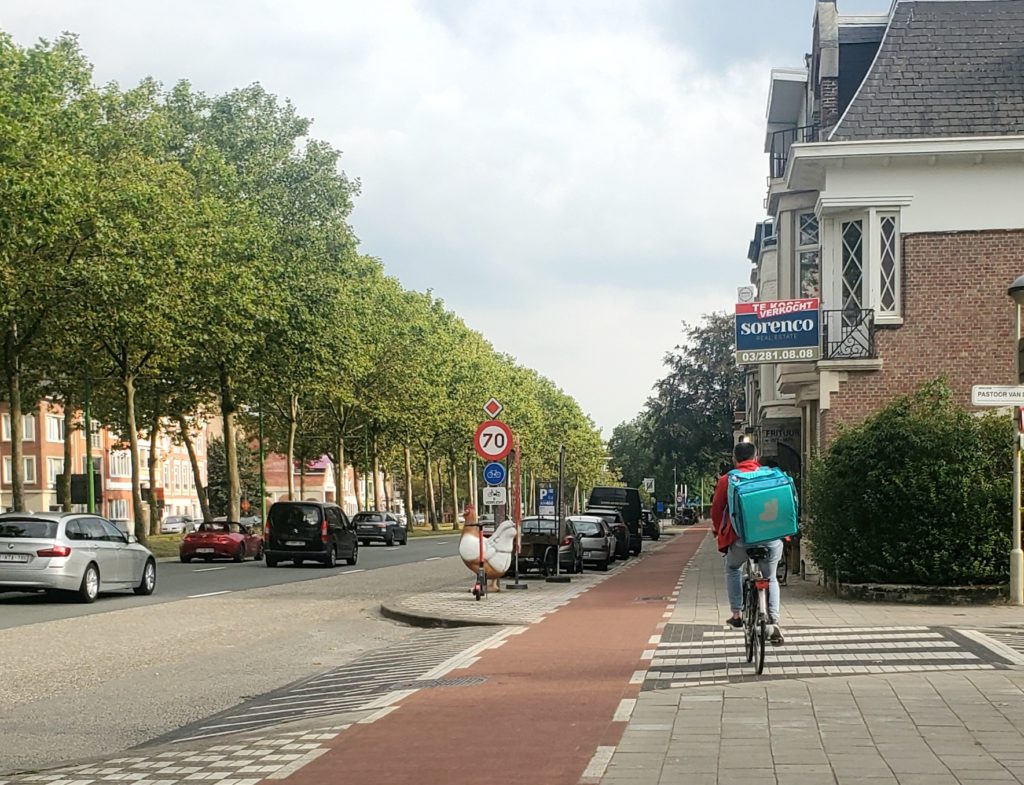Members of the European Parliament voted today to demand fair and equal social protection for employees of platform-work companies, like Uber and Deliveroo.
The resolution adopted on Thursday calls for the development of a European framework to guarantee that people working for digital labour platforms, also known as “gig workers,” should have the same level of social protection offered to traditional employees.
“Today, Parliament is taking another step towards protecting platform workers,” said Sylvie Brunet (Renew, FR) in a statement.
“Better access to social protection, improved working conditions, access to collective representation for the self-employed, clarification of their status, and the use of ethical algorithmic management are all issues that urgently need to be addressed at a European level. We say yes to digital, but not at the expense of working rights.”
The framework MEPs are calling for would establish that unless companies can prove an absence of employment relationship, workers should not be considered self-employed.
They also want accident insurance for transport workers like those who drive for Uber and Bolt, and more transparency around the algorithms that the various platform work apps use for pricing, task assignment and the ratings users can leave of the employees.
Concerns have been raised that such algorithms and systems can be discriminatory or unethical.
Merci aux 524 collègues qui ont apporté leur soutien à mon rapport sur les #TravailleursDesPlateformes.
Le Parlement européen adopte une position ambitieuse afin que le socle européen des droits sociaux soit respecté pour les nouvelles formes de travail. @NicolasSchmitEU pic.twitter.com/pUrNRB2Zv8 — Sylvie Brunet (@syl_brunet) September 16, 2021
Translation: Thank you to the 524 colleagues who supported my report on #PlatformWorkers. The European Parliament is taking an ambitious stance to ensure that the European social rights framework is respected for new forms of work.
“Platform workers are often misclassified as self-employed, depriving them of access to social protection and other labour rights,” MEPs said in a press release.
They said that they aren't in favour of an automatic classification of all platform workers as traditional employees, however, stating that “those who are genuinely self-employed should be allowed to remain in that position.”
Some of the social protections they want for gig workers include social security contributions, responsibility for health and safety and the right to engage in collective bargaining to negotiate fair terms and conditions of employment.
“While they acknowledge the opportunities for job creation and increased choice that platform work can bring about, MEPs are concerned about the poor working conditions often faced by these workers,” said the statement.
“Given the fact that on-location platform workers are often subject to increased health and safety risks, such as road accidents or injury caused by machinery, they should be equipped with adequate personal protective equipment. Those active in transportation and delivery services need to have guaranteed accident insurance.”
They also said that workers should have the ability to challenge decisions made by algorithms and there must always be human oversight of the process.
Gig work platforms have been operating in Europe for some time now, and many of the companies have faced backlash from those who see their business model - in which workers are classified as self-employed and therefore don’t have access to many social protections - as incompatible with progressive European labour laws.
While some companies launch initiatives designed to emulate some of these missing social protections, like in-house insurance offerings, union leaders and labour experts have criticised these as little more than window dressings designed to placate the press.
A special coronavirus fund set up by Uber to help workers affected by the global pandemic, for example, paid a Brussels courier just €67.64 for 11 days of lost wages when he was forced to quarantine after his wife tested positive for Covid-19.
The city of Brussels has also been having its own war with Uber, banning its drivers from using their smartphones in an effort to curtail the operations of the American corporation.
The European Commission announced in its action plan on the European Pillar of Social Rights that by the end of this year, it would present a legislative initiative to improve the working conditions of platform workers.
Today’s resolution was adopted by 524 votes in favour, 39 against and 124 abstentions.

